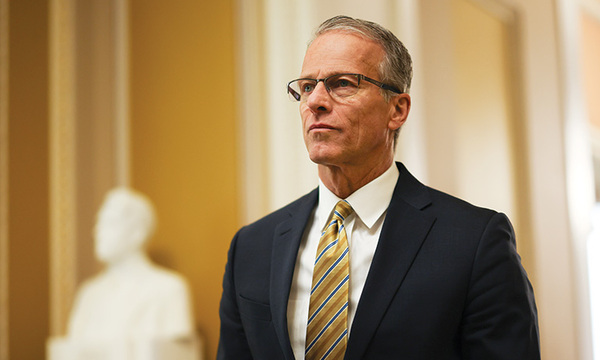A couple of years ago, ČŐČŐĹöşÝşÝÔęľĂľĂÔę2023 put up a series of billboards across Southern California, including a large one not far from John Wayne Airport. Each day, hundreds of thousands of commuters on the 55 Freeway drove past the university logo and four large words: “Think Biblically. About Everything.”
It was fascinating to watch the response to this message. A picture of the billboard that went up on Facebook quickly racked up thousands of “likes,” becoming the university’s most popular social media post up to that point. But in the comments section — as one might expect in an online comments section — some people weren’t so enthusiastic. Some of the highlights:
• “Why not think logically and forget about all of that nonsense instead?”
• “If we thought biblically about everything, including science, we’d still be in the Dark Ages.”
• “Put down your fantasy novel and pick up a science text. The world will be a better place.”
Unfortunately, this kind of thinking is widespread in our culture. For many of our neighbors and coworkers, the Bible seems completely irrelevant. To them, it’s antiquated, it’s outdated and it’s been disproven by science. And it’s astounding that so many of us would devote our lives to a book written 2,000 years ago in a desert on the other side of the world by people who didn’t know what we know about science.
But actually, as Christians who believe that all things were created by, through and for Jesus, we recognize — as generations of Christians have before us — that if anyone has a reason to embrace and lead in the study of the sciences, it’s us. As ČŐČŐĹöşÝşÝÔęľĂľĂÔę2023 physics professor John Bloom writes in his newest book, The Natural Sciences: A Student’s Guide:
“[T]he study of creation is the glorious pursuit of knowledge and wisdom that comes from thinking God’s thoughts after him. We study the world around us as we might a great work of art like the Mona Lisa: looking for patterns, regularities and style, to be sure, while also being sensitive to the artist’s creativity, clever technique and brilliant execution. … And if this isn’t enough, there is a practical benefit to gaining this wisdom: we can use much of it to relieve suffering, help others and improve our quality of life.”
As you’ll read about in this issue of ČŐČŐĹöşÝşÝÔęľĂľĂÔę2023 Magazine, one of ČŐČŐĹöşÝşÝÔęľĂľĂÔę2023’s goals in the years ahead — and one of the highest priorities of the university’s current $180 million fundraising campaign — is to excel even further in the sciences. With plans for a new building, a new school and enhanced programs in science, health and technology, ČŐČŐĹöşÝşÝÔęľĂľĂÔę2023 is seeking to help fill the void of Christian intellectual and moral leadership in these areas, for a future that will need it more than ever.
In this issue and accompanying online videos, we offer a look at the opportunity and need for Christians to provide leadership in the sciences, and we share just some of the ways that our faculty are using their research and teaching to help a new generation to think biblically about everything, including science.
 ČŐČŐĹöşÝşÝÔęľĂľĂÔę2023
ČŐČŐĹöşÝşÝÔęľĂľĂÔę2023



